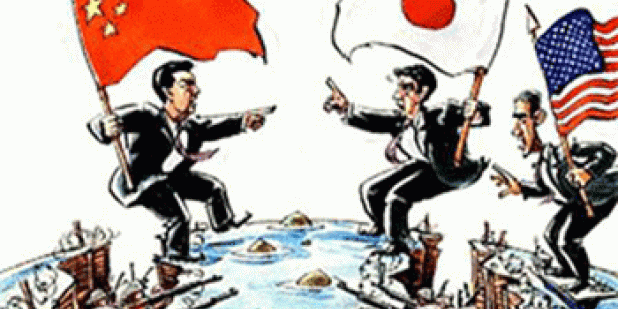Happy Lunar New Year from the USC US-China Institute!
China's Rise, U.S. Re-Balancing, and Japan Caught in the Middle
The Oldenborg Luncheon Colloquium and the Pacific Basin Institute at Pomona College present a presentation by David Arase addressing Japan's difficult situation created by the competition between China and the U.S.
Where

China's Rise, U.S. Re-balancing, and Japan Caught in the Middle
David Arase, Resident Professor of International Politics; Johns Hopkins University-Nanjing University Center for Chinese and American Studies, Nanjing University
This talk will address Japan's difficult situation created by the competition between China, a rising, revisionist power, and the U.S., a status-quo hegemonic power. The emphasis will be on the changing balance of power between these three actors, and the resulting changes in the identity, interests, and perceptions of each one. The outcome is a structural conflict that is driving the daily news headlines.
David Arase is the author of Buying Power: the Political Economy of Japan's Foreign Aid (1995). He has produced three edited volumes and published many shorter articles and book chapters. His last book (co-edited with T. Akaha), The US-Japan Alliance: Balancing Softand Hard Power in East Asia (2010), won the 2011 Ohira Memorial Foundation Special Prize for work advancing the idea of Pacific community. Dr. Arase has been a U.S. State Department-sponsored touring speaker in South Korea and China and has previously taught at the School of Oriental and African Studies in the University of London, the University of Tsukuba in Japan and at Pomona College for 22 years.
Featured Articles
We note the passing of many prominent individuals who played some role in U.S.-China affairs, whether in politics, economics or in helping people in one place understand the other.
Events
Ying Zhu looks at new developments for Chinese and global streaming services.
David Zweig examines China's talent recruitment efforts, particularly towards those scientists and engineers who left China for further study. U.S. universities, labs and companies have long brought in talent from China. Are such people still welcome?






